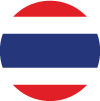Draft Foreign Investment Rules 2017:
The Proposed New Investment Regime in Myanmar
FEBRUARY 2017
The Myanmar Investment Commission (with assistance from the International Finance Corporation) has recently released the latest draft (version 2) of the Myanmar Investment Rules (“Draft Rules”) following enactment of the Myanmar Investment Law 2016 (“MIL”) last year. The Draft Rules have been welcomed by investors and professionals, given that they provide substantially more detail and meaning to the MIL which has now been in force for several months but is not yet implemented at a working level by Myanmar authorities. South Asia Law has been following developments in the legislation closely, and the key changes to the regime are summarised in this Article.
Previously, under the Foreign Investment Law 2012 (“FIL”), all investments which were noted as being regulated investments under Notification 26/2016 were possible only where an investor made an application to the Myanmar Investment Commission (“MIC”). This was the case regardless of the quantum of investment, and all investments received a standard set of tax exemptions including a corporate income tax break of five years and exemptions on import duties for imported equipment and materials which were required in the construction period.
As foreign direct investment has been pouring into Myanmar since 2012 (with some sectors receiving considerably more investment than others), the Authorities considered how to refine the regime in order that the right incentives were granted to certain areas of promoted investment, those being sectors which the Government considered to be crucial for Myanmar’s development and most deserving of the promotional incentives. The MIL seeks to do this, as well as to introduce a regime which makes it easier to invest across the board, and without the need for highest level approvals depending the nature and quantum of the investment.
Under the Draft Rules there are several types of investment applications that an investor may make, depending on the nature of their investment and the various incentives sought by that investor:-
1. MIC Permit Application
An MIC Permit Application is required where:-
a) The investment is ‘strategic’ meaning it involves an investment in infrastructure, extractive industries, agriculture or media and its value is in excess of $20m;
b) If there is a concessionary right granted by a Ministry for the venture and its value is in excess of $20m;
c) If the investment is conducted across a border of Myanmar and its value is in excess of $20m;
d) If it is primarily an agricultural investment and includes rights to occupy or use more than 1000 acres of land;
e) If it is made for primarily non-agricultural purposes and includes rights to occupy or use more than 100 acres of land;
f) If the investment is capital intensive (meaning its value is in excess of $100m) or has the ability to negatively affect the environment.
An investor seeking to secure land rights were the total aggregate consideration paid is less than $5m does not require a full MIC Application. MIC Applications are scrutinised by the MIC being the highest level authority for Investment in Myanmar.
2. Endorsement Application
An Endorsement Application is required where an investor is intending to make an investment which does not fall into the category which would require an MIC Application, or an investor is seeking only tax incentives (discussed further below) and/or a long term land use right (discussed further below).
Rather than submitting an application to the MIC, an Endorsement Application may be made at the regional/state level to the Directorate of Investment and Company Administration (“DICA”). Senior DICA officials are authorised to scrutinise and approve applications provided the investor has managed to obtain a letter of recommendation from the relevant Ministry. While the procedure is the same as an MIC application, there is no need to involve the MIC and therefore the intention is for investments to be ‘streamlined’ as they are able to be approved more readily and frequently by DICA officials.
3. Tax Incentive Application
If an investor is only seeking to make an application only for tax incentives, they are able to bring an application solely seeking this set of benefits. As with an Endorsement Application, this will be decided on a discretionary basis, and the Authorities will allow these only where investment is considered to be in a location and sector worthy of tax incentives.
4. Land Rights Incentive Application
If an investor is only seeking to make an application only to secure a long term land lease, they are able to bring an application solely seeking this benefit. A long term land lease can be discretionarily granted by DICA for up to fifty years with two rights of renewal of ten years each.
Given the slightly more complex criteria for types of application, and particularly during the implementation of this new regime, the MIC has also established ‘Investment Screening Application’ in which an investor can seek guidance from the MIC as to the type of application which is required.
South Asia Law shall be following the development of this law closely. If you would like more information on how to invest in Myanmar,
please contact benh@southasia-law.com.




 THAILAND ADDRESS
THAILAND ADDRESS
5th Floor, Zuellig House 1-7 Silom Road, Silom Bangrak, Bangkok 10500 Thailand
Tel : +66 2 6360585
Fax : +66 2 6360587
E-mail : enquiries@southasia-law.com
 MYANMAR ADDRESS
MYANMAR ADDRESS
No. 791, Lower Phone Gyi Road, Lanmadaw Township, 11191, Yangon, Myanmar
Tel :
Fax :
E-mail : enquiries@southasia-law.com